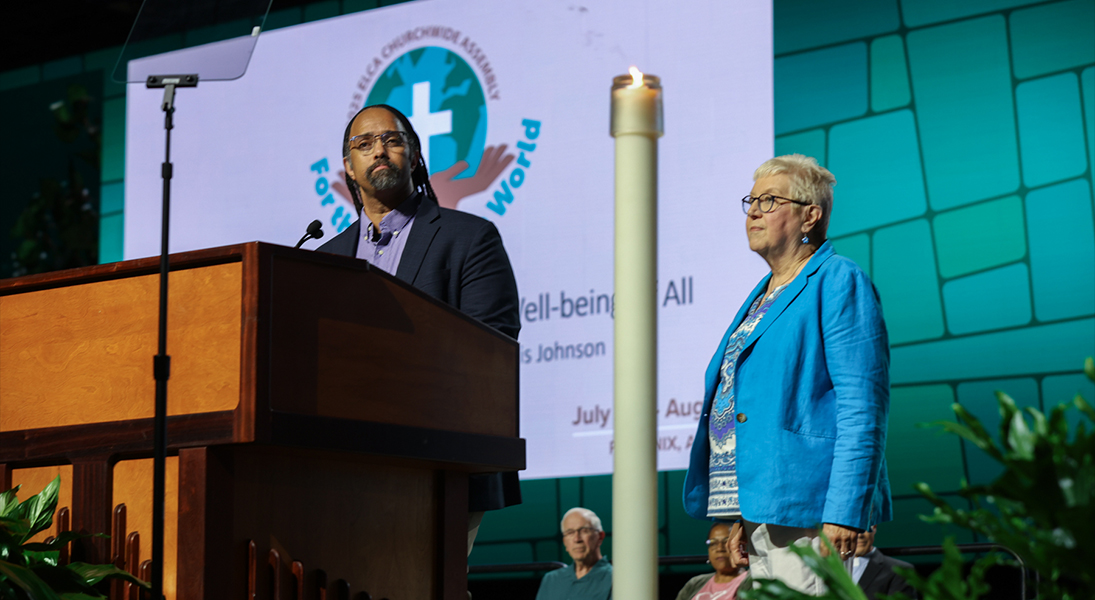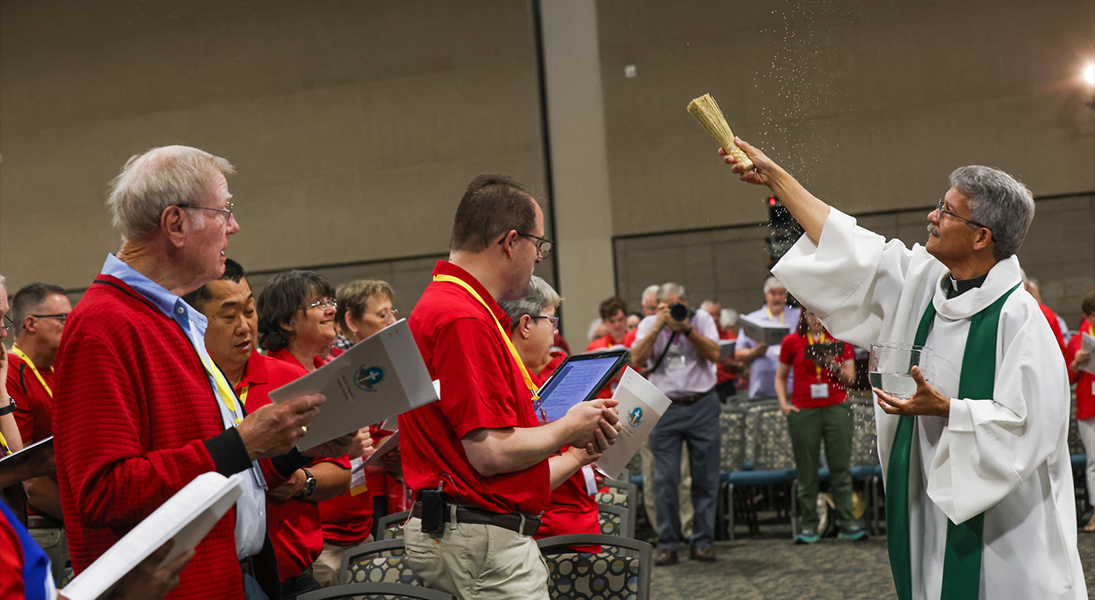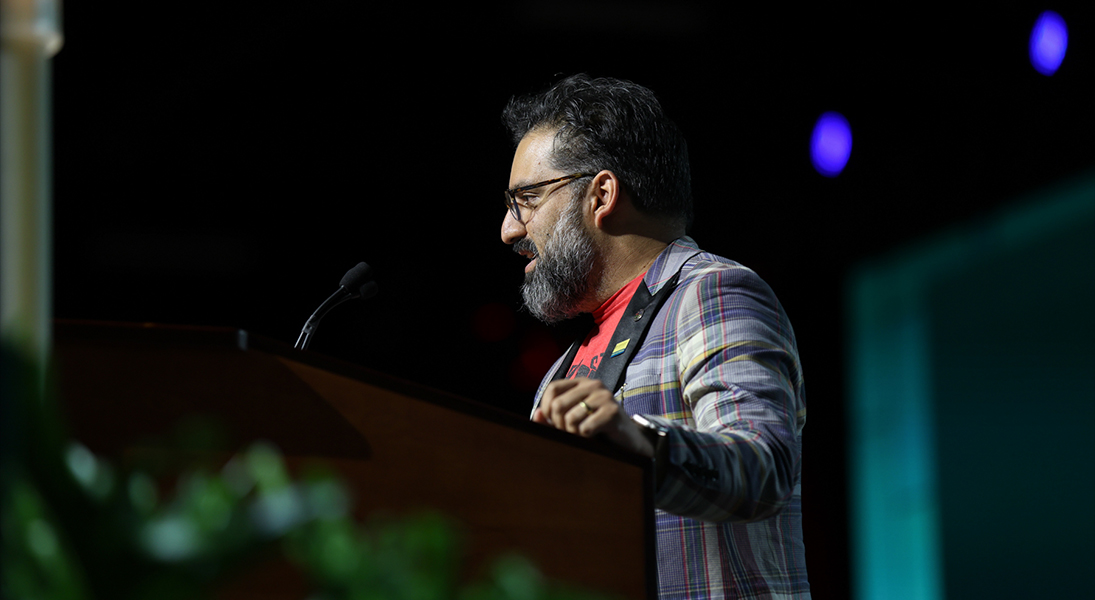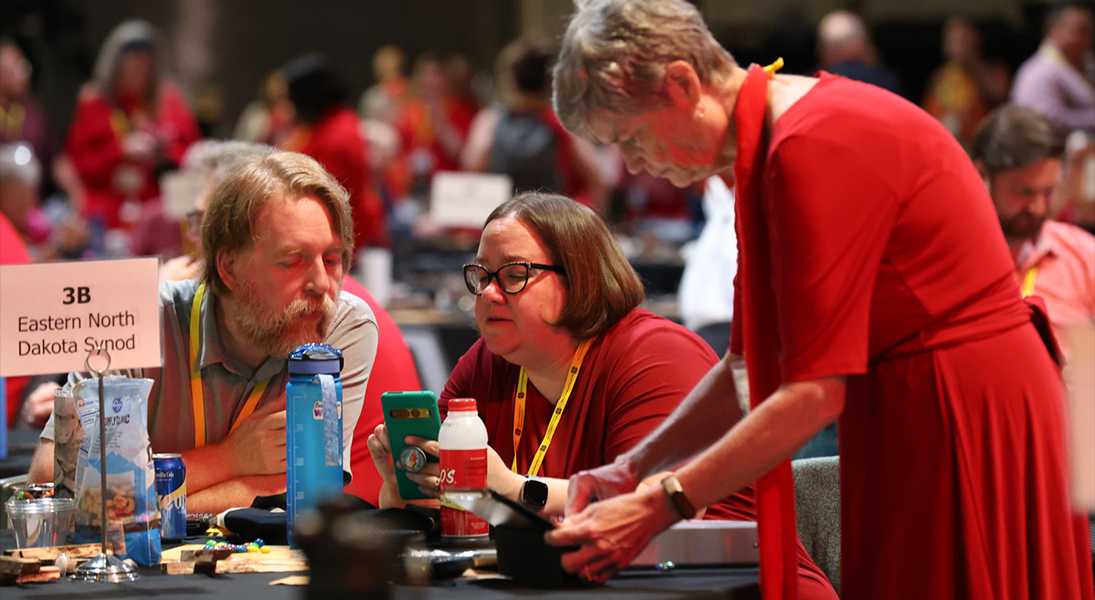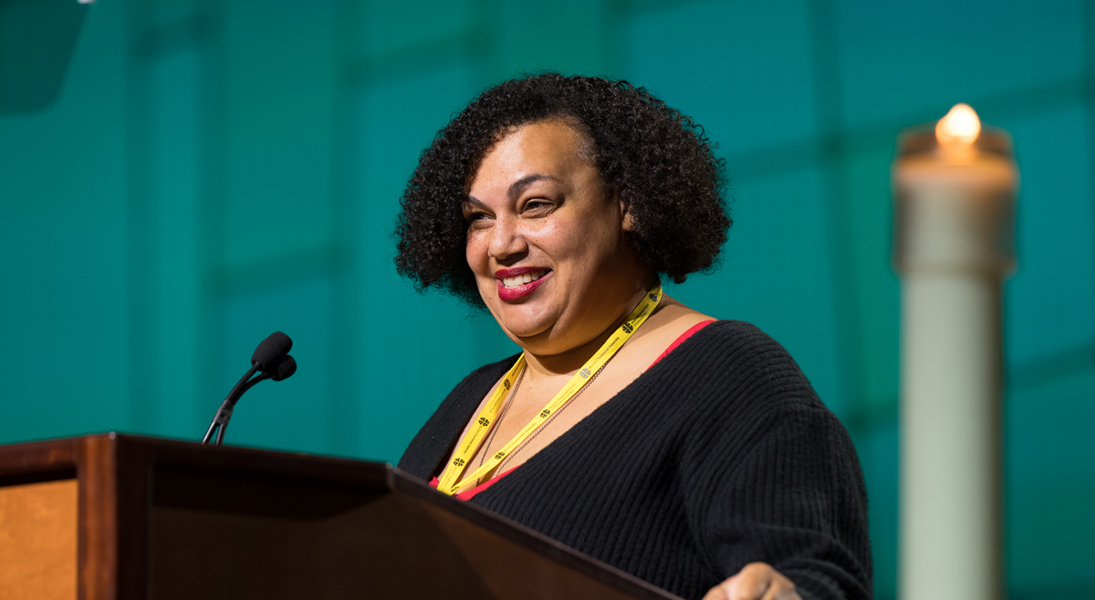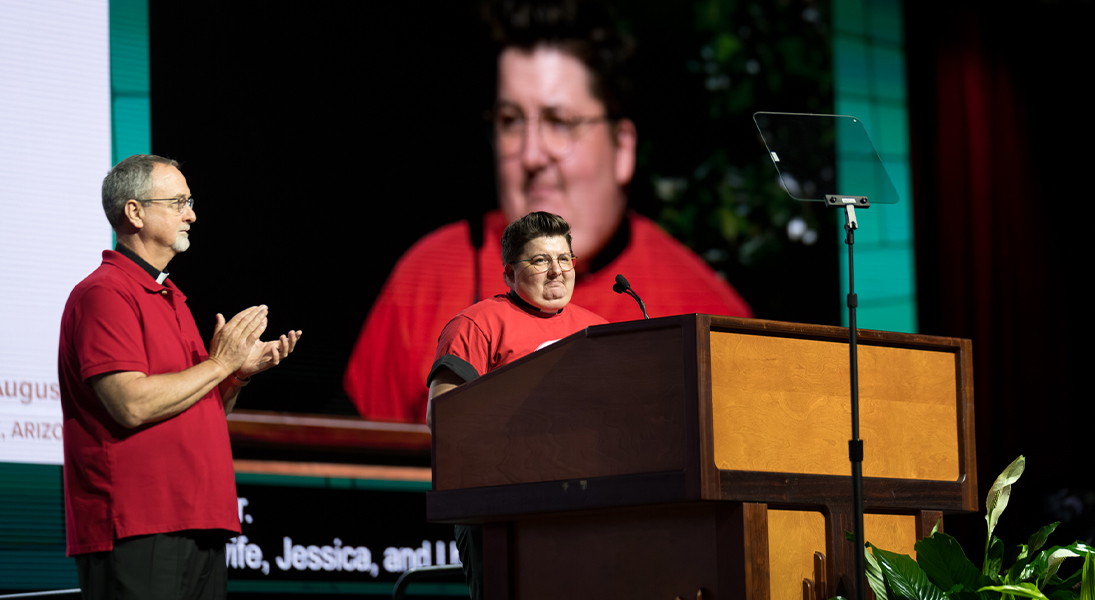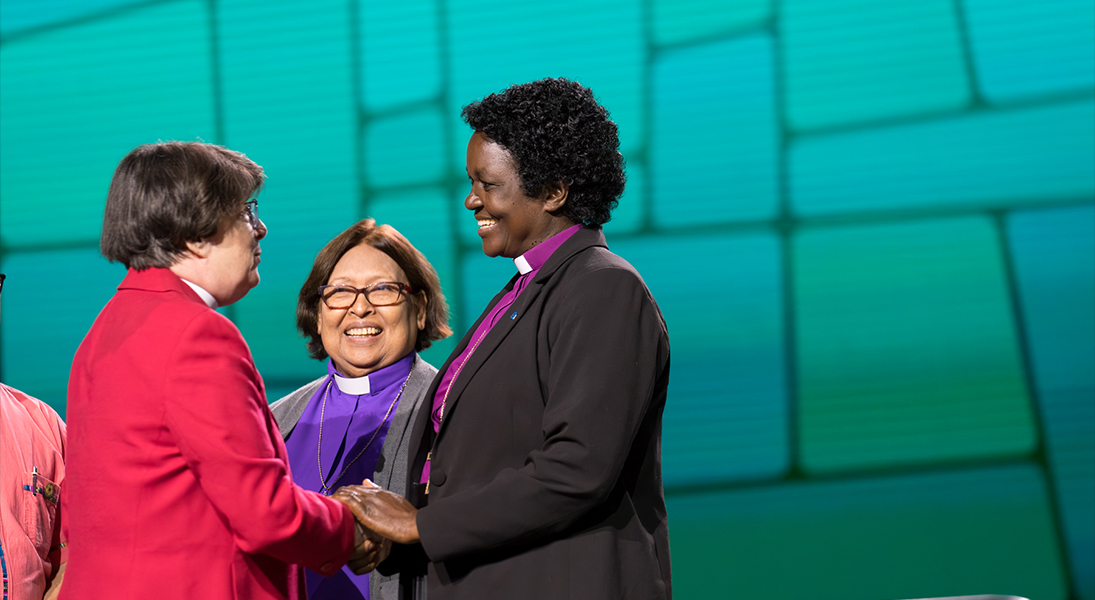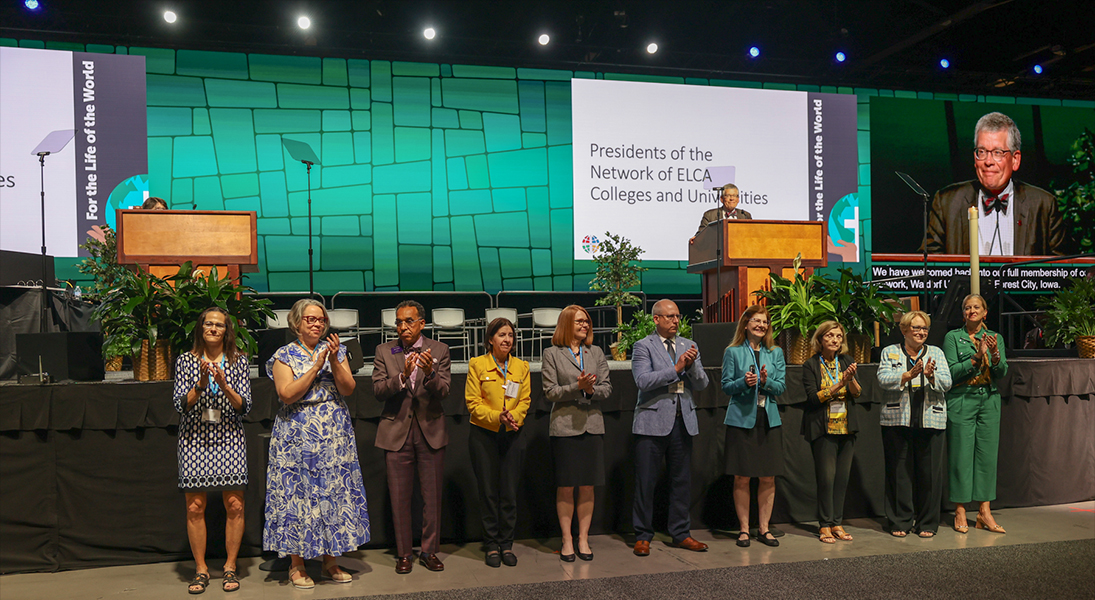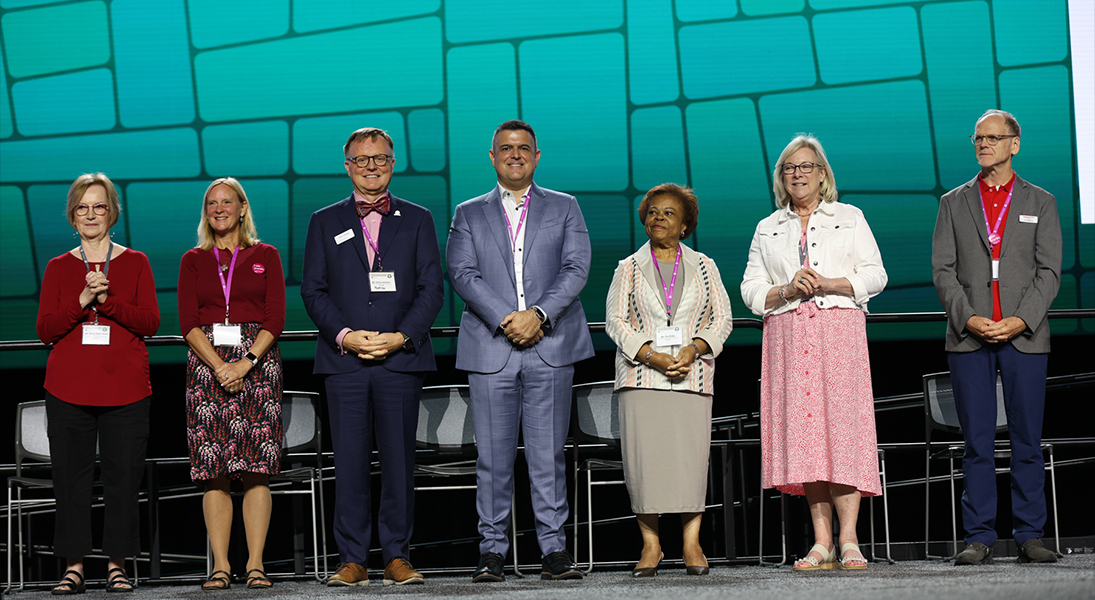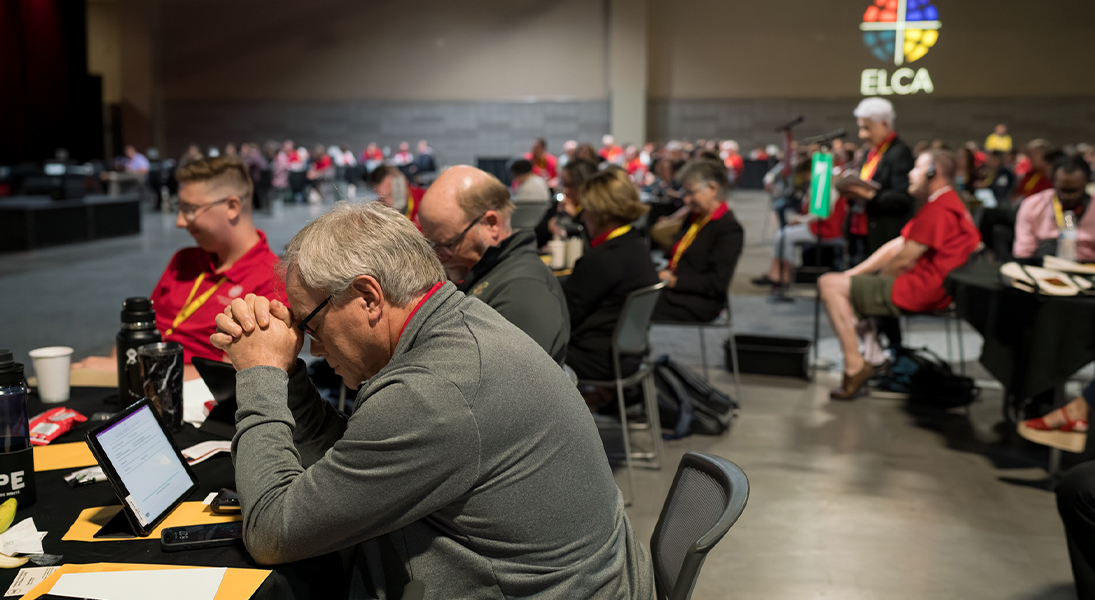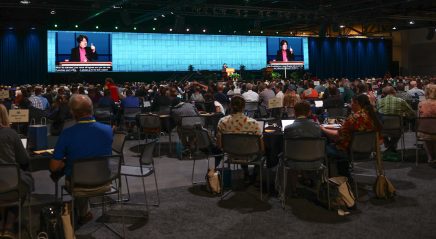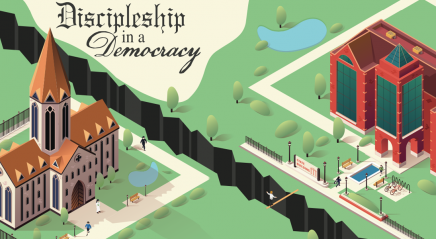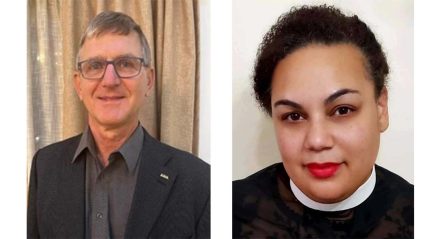The 2025 ELCA Churchwide Assembly continued July 29 at the Phoenix Convention Center. Day two included the second and third plenary sessions and a morning prayer service at which Nelson Rivera, professor of theology and ethics at United Lutheran Seminary, preached on the theme “Baptized for the Life of the World.”
On this day, the assembly was invited by the American Indian and Alaska Native Lutheran Association to wear red to bring awareness to missing and murdered Indigenous women and girls.
The second plenary session opened with a report that the first ballot for presiding bishop did not result in an election. Tom Cunniff, ELCA general counsel, said 77 candidates received votes during the first ballot, with dozens of people joining the preidentified nominees on the ballot. Nominees had until midday to remove their name from consideration going forward.
By the vote during the third plenary, 34 nominees remained on the ballot. On the second ballot, 791 votes were cast for presiding bishop; 594 were needed for election. Seven nominees received enough votes to move to Wednesday’s question-and-answer forum and third ballot.
Those seven are: Amy Current, bishop of the Southeastern Iowa Synod; Kevin Strickland, bishop of the Southeastern Synod; Yehiel Curry, bishop of the Metropolitan Chicago Synod; Tracie Bartholomew, bishop of the New Jersey Synod; Bill Gohl, bishop of the Delaware-Maryland Synod; Craig Schweitzer, bishop of the Western North Dakota Synod; and Angela Shannon, assistant to the bishop of the Metropolitan New York Synod.
Plenary session two
Before the second ballot vote, the day moved into preparation for the remaining assembly sessions, including the introduction of the draft of the “Faith and Civic Life” social statement by its committee co-chairs Anthony Bateza, associate professor of religion at St. Olaf College in Northfield, Minn., and Phyllis Johnson, former vice president of the Eastern North Dakota Synod. They were joined by task force member Douglas Barclay, pastor of Trinity Lutheran Church in Manhattan Beach, Calif., to lay out the process of developing the statement on how church members may faithfully speak and act in civic life, as called for by the 2019 Churchwide Assembly.
During the plenary’s college corporation meeting, Paul Pribbenow, president of Augsburg University in Minneapolis, presented the Network of ELCA Colleges and Universities’ strategic plan. Network leaders were recognized and Waldorf University, Forest City, Iowa, was welcomed back into full membership. Valparaiso (Ind.) University was included as an associate member.
Rebecca Ehretsman, president of Wartburg College in Waverly, Iowa, then delivered a governance report. Wartburg’s governance requires the churchwide assembly to act as its college corporation.
Leaders of the seven ELCA seminaries were also recognized.
The session continued with an update on the repudiation of the Doctrine of Discovery, as called for by the 2016 Churchwide Assembly. In 2019, Elizabeth Eaton, ELCA presiding bishop, authorized the formation of a task force to implement a comprehensive and churchwide repudiation of the doctrine, which allowed European, and later American, nations to claim lands occupied by Indigenous or other non-European, non-Christian people as federal property.
Manuel Retamoza, co-chair of the ELCA Repudiation of the Doctrine of Discovery Task Force, and Amy Odgren, bishop of the Northeastern Minnesota Synod and a task force member, presented the group’s findings.
Retamoza and Odgren spoke about the church’s Missing and Murdered Indigenous Women movement efforts and highlighted the ELCA’s Truth & Healing Movement, led by Vance Blackfox, ELCA director for Indigenous ministries and tribal relations, as well as the truth-seeking and truth-telling initiatives revolving around Indian boarding schools.
“Ask your pastor, your deacon, your synod bishop, what is being done to address the ELCA’s commitment to repudiate the Doctrine of Discovery,” Retamoza said, encouraging participants to visit elca.org/indigenous for resources.
Before the morning session ended, Imran Siddiqui, ELCA vice president, gave his report and that of the ELCA Church Council. “Something near to my heart is the systemic devaluation of lay leadership in our church,” he said. To counter this, Siddiqui announced the council’s passage of the Commission for a Renewed Lutheran Church’s (CRLC) recommendation for an Association of Synod Vice Presidents. “This is a good first step in acknowledging the role of the synod vice presidents and the need for formal fellowship and training,” he said.
Plenary session three
During the third plenary, Lori Fedyk, ELCA treasurer, and Wyvetta Bullock, executive for administration, presented the budget report and proposal for 2026-2028. The report showed that the revenues in each of the previous three years exceeded spending. The additional funds were used to meet obligations created by the previous assembly, to contribute to an endowment that supports new ministries, and to provide funds to support work in the next two years as the churchwide organization settles into the new and additional work that comes from a new presiding bishop, Fedyk said.
Fedyk and Bullock then presented the proposed budget for the next three years, including how the ELCA conservatively plans its budget to remain fiscally responsible with the money it receives while supporting congregations and ministries throughout the country. The assembly will vote on the budget July 31.
Hilja Ndatala-Eenyofi Nghaangulwa, bishop of the Eastern Diocese of the Evangelical Lutheran Church in Namibia, brought greetings during the budget presentation and voiced gratefulness for the ELCA’s support during her country’s struggle for independence and for its continued partnership. Guadalupe Cortés, bishop of the Salvadoran Lutheran Church, also shared greetings and gratitude for its partnership with the ELCA throughout the years, especially during the country’s civil war and period of high organized crime.
The afternoon also included an introduction of the revision of the “Human Sexuality: Gift and Trust” social statement, which included a discussion of the task force’s covenant for its work: to remember they are all part of the body of Christ and devoted to the greater body. The work, presented by Keats Miles-Wallace, pastor of Technicolor Ministries in the Southwestern Texas Synod, and Joel Benson, pastor of Trinity (Butler) and Rider (West Sunbury) Lutheran churches in Pennsylvania, focused on respecting the opinions and intentions of those approaching the statement from different aspects.
The task force presented proposed revisions that focus on consistency of language; the legality of marriage that has changed since 2009 when the statement first passed; and updating language revolving sex, sexuality and gender, including updates to make the language more gender-inclusive. A vote on any amendments presented at the assembly and the final consideration will be held Aug. 1.
The next report was from the CRLC, presented by co-chairs Carla Christopher, assistant to the bishop in the Lower Susquehanna Synod, and Leon Schwartz, a member of St. Paul Lutheran Church in Winterset, Iowa. The report detailed recommendations for the church to act on now and considerations to discern into the next churchwide assembly in 2028. Five considerations will be considered this week, while seven were addressed by the Church Council. The council determined that another consideration, regarding a possible name change for the church, merited further conversation before any recommendation is made.
In other business, several memorials were considered during the second plenary. The assembly adopted (729-49) en bloc two memorials. Two memorials (Memorial C8: Social Message on Rural Life and Ministry and Memorial D1: Justice for Palestinians and Israelis) were pulled from en bloc for separate consideration.
Memorials approved Tuesday include:
- Memorial A3—Indian Boarding School Remembrance: Calls for (779-7) the church to observe the National Day of Remembrance for Indian Boarding Schools annually, develop educational programs and materials surrounding the history and ELCA’s complicity with Indian boarding schools, and provide ongoing recognition and support for the continued work to locate all known records regarding the ELCA predecessor churches’ involvement with Indian boarding and day schools, among other actions.
- Memorial B14—Consideration of Recommendation 1 of the Commission for a Renewed Lutheran Church: Calls for (646-144) the church to acknowledge the importance of accountability in addressing racism within all structures of the ELCA, to affirm the work of the Strategy Toward Authentic Diversity Advisory Team, to request that the Church Council continue to work with the team to clarify the nature of mutual accountability, and to direct the Church Council to add a timeline to its actions taken and to provide progress updates to this church with a final report by fall 2027, including possible constitutional changes.



